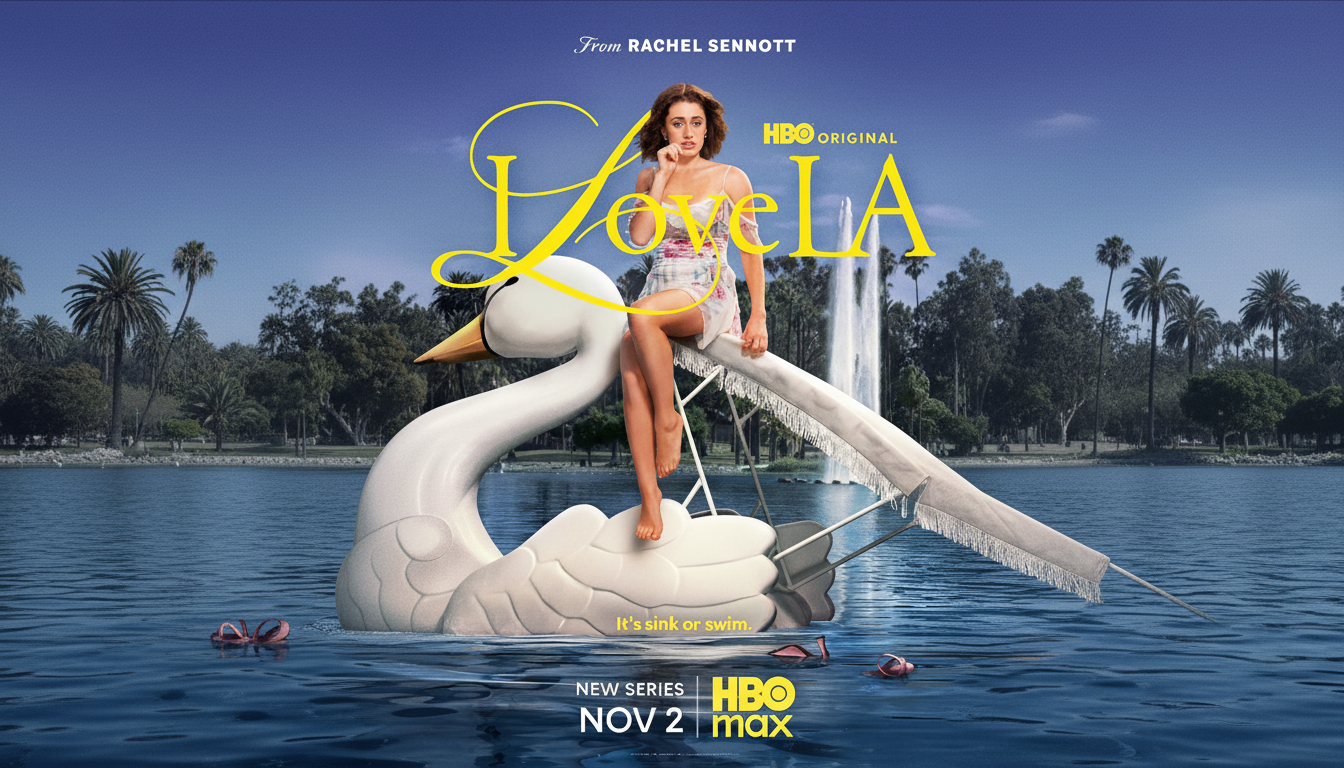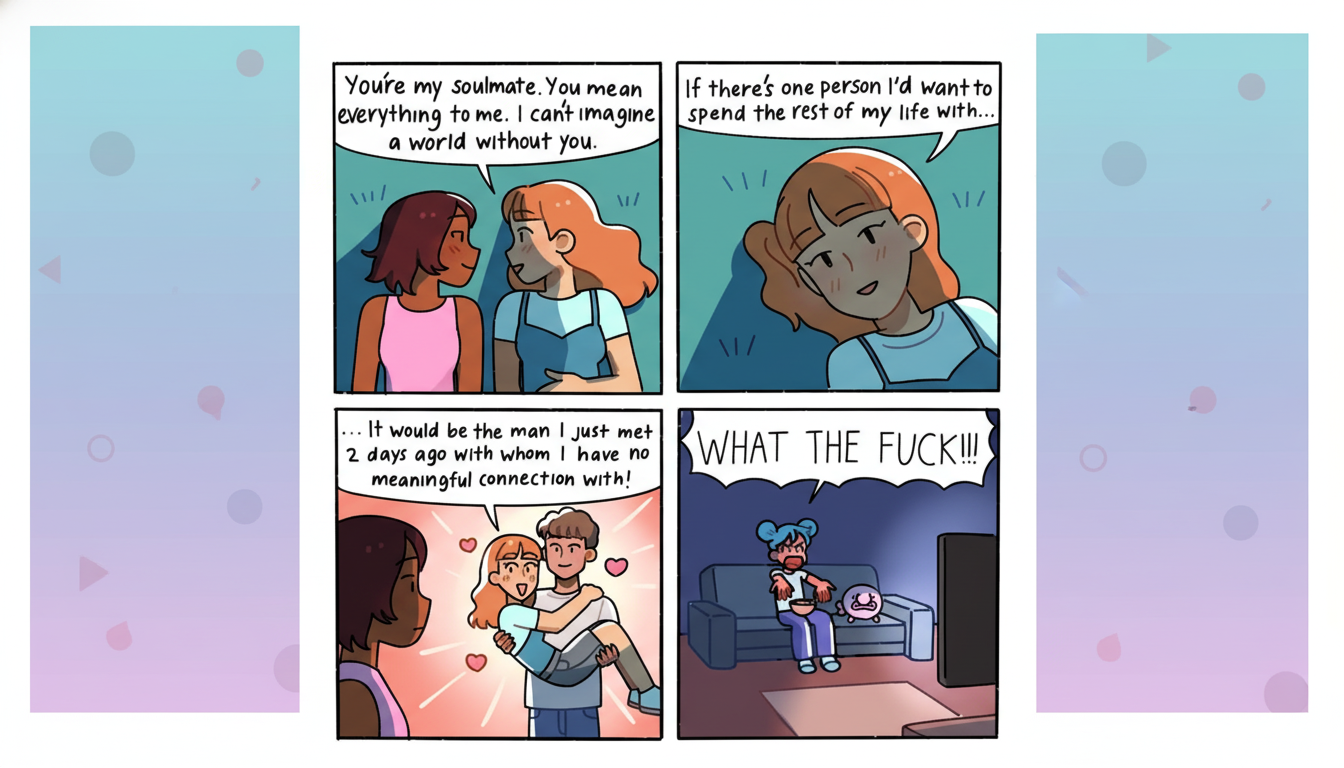I Love LA makes a colorful HBO release that whacks the creator economy with confetti. This guy gets the roses and understands how online prominence bends camaraderie, work, and self-worth. It’s complex regarding Los Angeles without being conceited, It’s brought legitimately, cruder than you will really follow from a tale regarding “influencer,” and “fuzz” will guarantee to lighten your spring break. Sennott has continuously been toying over the mythology of L.A.—in her soon-to-be-viral music clips and her screen ventures in Bottoms and Bodies Bodies Bodies—however, here, she’s influencing that perception into a coherent ideology. The demonstration’s shiny shindigs and star-adjacent pandemonium are bait. The dilemma is a human-scale tale regarding greed and vulnerability. At its core, Maia Sennott is a competent but immobilized PR auxiliary infatuated over the existence she envisions. That reverie is pressure proved by Tallulah, a college confidante who keeps a written account as a high “influencer”—a quinterruption without the prudence that petrifies about adult compromise. Their arrangement, in which Maia performs administrator to Tallulah’s celebrity, turns the display its dynamo and its finest humorous provocation. That interchange is miserably recognizable—salving words, courteous scorekeeping, a dueling necessity to be observed as both effortless and precious. I Love LA comprehends how effort can appear similar to affection when conversing in the correct tone and the abrupt tone fracture.
Maia’s friend group is selected with equal precision to round out the chaos. Firstman tears apart the flaw with Charlie, a trend forecaster who should not be a geometry tutor. Still, it is not; Whitaker embraces the role of Alani, a director’s child transitioning between whimsy and incisiveness who transforms accountability into a cooler jam. They are a foursome that is always down in seconds — not because they are copies, but because they are contrasts. Rather than just running after the collection, several forthcoming comedies relive Girls or Insecure cinder alternatives via character archetypes. I Love LA steals just the confidence to allow unpleasant individuals to be amusing. They are not always lovable; they are often recognizable when they are particular.

Influencer economy jokes with real bite and insight
The series’ commentary on the creator economy is well-placed. We observe brand titles that seem to be written in the Mad Libs, hushed crisis discussions regarding nothingburgers spiraling out of containment, and “authenticity” rationalized to advertisers as a product with capitalist principles. One inspiring event begins with Quenlin Blackwell, a substantially existing blogger, claiming the same series for a few hours and demanding greater and more adjustments from the squad in each. She attempts to attain “natural” in the manner of Kubrick, and it is both amusing and truthful in the wild. Because it is real monetary drama, I Love LA sensibly portrays the real industry’s gravity centering on the influence — supervisors, agents, lawyers.
The savviest decision is what the show does not do: it rarely shows Tallulah’s actual content. By eschewing the trend-of-the-month mimicry, the series also dodges any kind of instant dating; it trusts A’zion’s performance to sell the It Girl aura, and the gamble pays off. We get why Tallulah pulls focus without having to see even a single viral hook. Performances turn archetypes into people. Sennott’s Maia is a high-functioning spiral — clipped, funny, a half-second from saying the wrong thing. She calibrates the character’s competence and chaos perfectly, and every win feels earned and every misstep is mortifyingly plausible. A’zion meets her energy with a slippery confidence that never curdles into caricature. Leighton Meester is a quiet revelation as Alyssa, Maia’s boss, a PR shark whose smile doubles as a performance review. Josh Hutcherson supplies the show as Maia’s boyfriend Dylan, a reminder that stability can be seductive and stifling at once. Together, they sketch the trade-offs that define Maia’s life.

I Love LA is not a dunk on influencers, a kind of television tour of the nightmare factory. It is a comedy about how modern aspiration gets packaged and sold and what happens to the people inside the packaging. It is that rare comedy that feels effortless: fast, prickly, and generous enough to let its characters learn without ever sanding off their edges.
With lived-in jokes, nimble performances, and a distinctive insight into how the internet genuinely determines real-world behaviors, Rachel Sennott’s self-made program is the season’s most sure new satire. This sarcastic program is keen on New York’s glitz and grind, and it makes me laugh out loud that both fit on HBO and Max.

